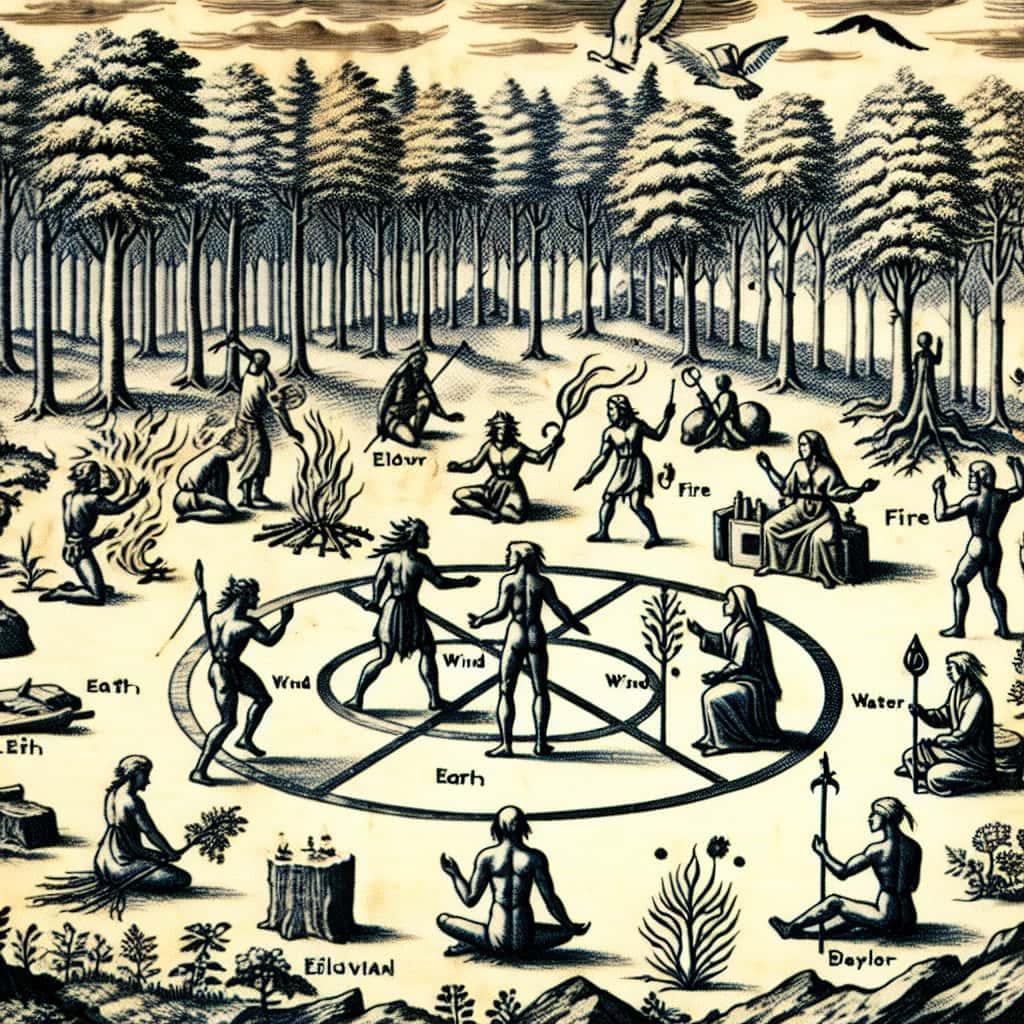Paganism is one of the oldest belief systems in the world, with a history stretching back thousands of years. While there is no definitive answer to the question of whether it was the first religion, there is ample evidence to suggest that it played an important role in the development of early spiritual practices. In this article, we will explore the origins of paganism, its influence on other religions, and its continued relevance today.
Paganism is one of the oldest religious traditions in the world, and it is often seen as the first religion. Although the term Paganism can refer to a wide variety of beliefs and practices, it generally refers to a polytheistic, nature-based spiritual tradition that honors multiple gods and goddesses. It is often seen as the precursor to modern religions such as Christianity, Islam, and Judaism, and it has had a significant influence on the development of these faiths.
What Is Paganism?
Paganism is an umbrella term for a wide variety of beliefs and practices that share certain commonalities. It is typically polytheistic, meaning that it involves belief in multiple gods and goddesses, and it is often focused on nature and the natural world. Paganism is often seen as a spiritual practice, rather than as a religion, and it is often characterized by its reverence for the earth and its emphasis on personal experience.
Paganism is also often seen as a way of living that is closely connected to nature and the cycle of the seasons. It often involves rituals and celebrations that are timed to coincide with events in the natural world, such as the solstices, equinoxes, and the cycles of the moon. Additionally, many Pagans practice divination and magic, often using tarot cards, astrology, and other forms of divination.
Was Paganism the First Religion?
The short answer to this question is no. Paganism is not the first religion, as there is evidence of religious practices that predate Paganism by thousands of years. For example, archaeological evidence suggests that religious practices were taking place in Africa, Asia, and Europe as early as 10,000 BCE. Additionally, many of the early religions, such as those of the ancient Egyptians, the ancient Sumerians, and the ancient Greeks, were polytheistic and nature-based, similar to Paganism.
Despite this, many Pagans and historians of religion argue that Paganism was the first “true” religion, in the sense that it was the first to emphasize a personal relationship with the gods, rather than regarding them as distant and unapproachable. Additionally, Paganism was the first to focus on the individual’s spiritual journey and to emphasize the importance of personal experience.
Paganism is believed to have originated in the ancient Near East, and it is thought to have been influenced by the religions of the ancient Egyptians, the ancient Sumerians, the ancient Greeks, and other early civilizations. Additionally, modern Paganism has been influenced by a variety of other traditions, including folk traditions, shamanism, Celtic beliefs, and Wicca.
The modern Pagan movement began in the early 20th century, when numerous people began to rediscover ancient pagan traditions and to incorporate them into their own spiritual practices. This movement has grown significantly in recent years, and it is estimated that there are now millions of Pagans worldwide.
Pagan Beliefs and Practices
Paganism is a diverse religion, and there is no single set of beliefs or practices that all Pagans adhere to. However, there are several core beliefs that are common among many modern Pagans.
Most Pagans believe in a divine force that is inherent in all things, and they often refer to this force as the “Divine” or “Great Spirit.” Additionally, many Pagans believe in the power of magic, and they often practice various forms of divination, such as tarot readings and astrology.
Paganism is often characterized by its reverence for nature and its emphasis on personal experience. Many Pagans practice rituals and celebrate festivals that are timed to coincide with events in the natural world, such as the solstices and equinoxes. Additionally, many Pagans practice various forms of magic, such as spell casting and energy work.
Conclusion
Paganism is one of the oldest religious traditions in the world, and it is often seen as the precursor to modern religions such as Christianity, Islam, and Judaism. While Paganism is not the first religion, it is often seen as the first to emphasize a personal relationship with the gods and to emphasize the importance of personal experience. Paganism is a diverse religion, and it is characterized by its reverence for nature and its emphasis on personal experience.
The evidence suggests that Paganism is one of the oldest religions in the world. It has a long and varied history, with many different interpretations and practices. Its influence on modern religions and its continued relevance in today’s world are undeniable. Its emphasis on nature, the divine feminine, and the interconnectedness of all things makes it an attractive and meaningful spiritual path for many. Despite the many changes that have occurred over the centuries, the core values of Paganism remain the same: respect for the Earth and all its creatures, and a deep reverence for the divine. Paganism is an ancient religion that still has much to offer in our modern world.





